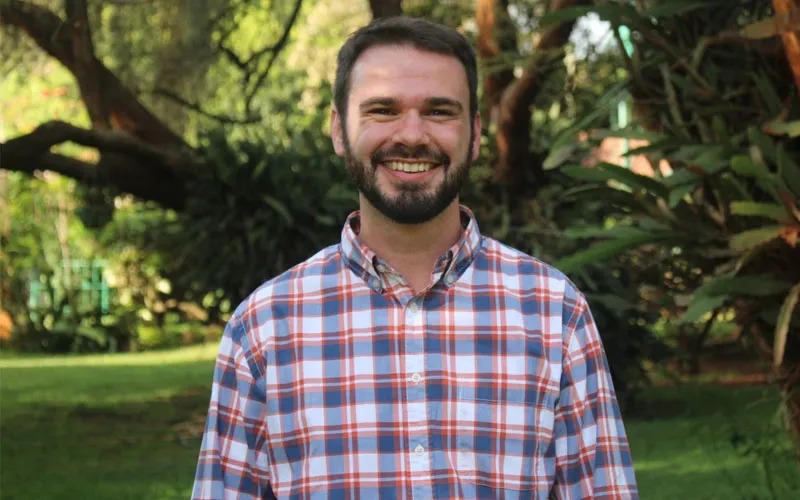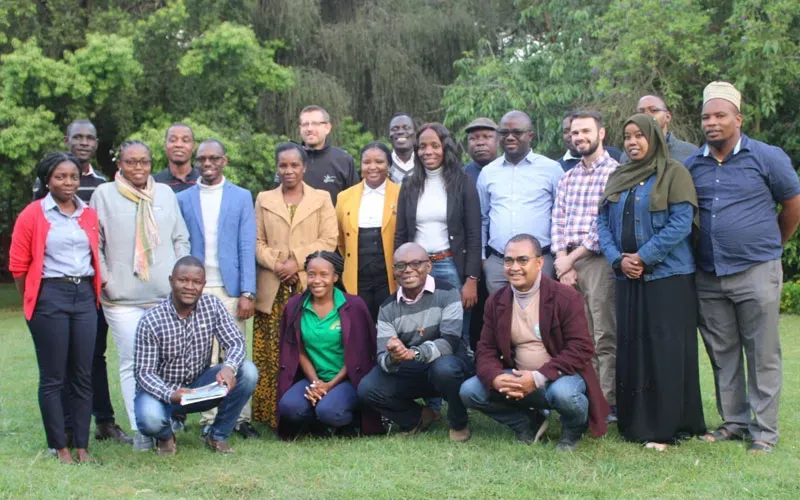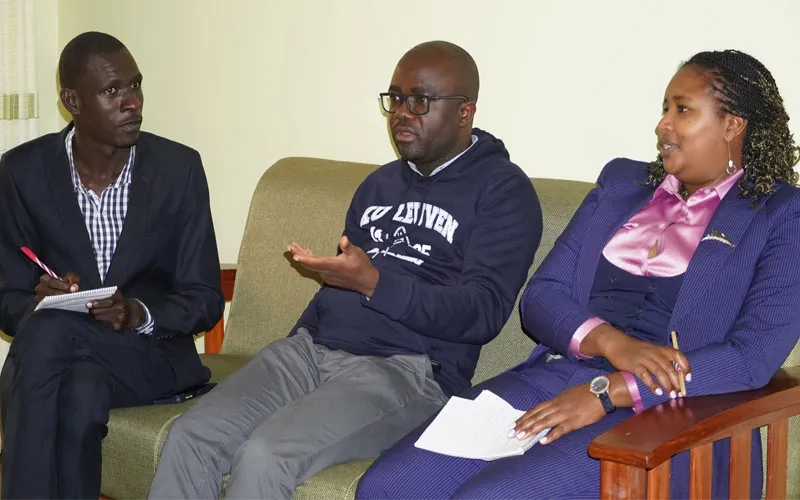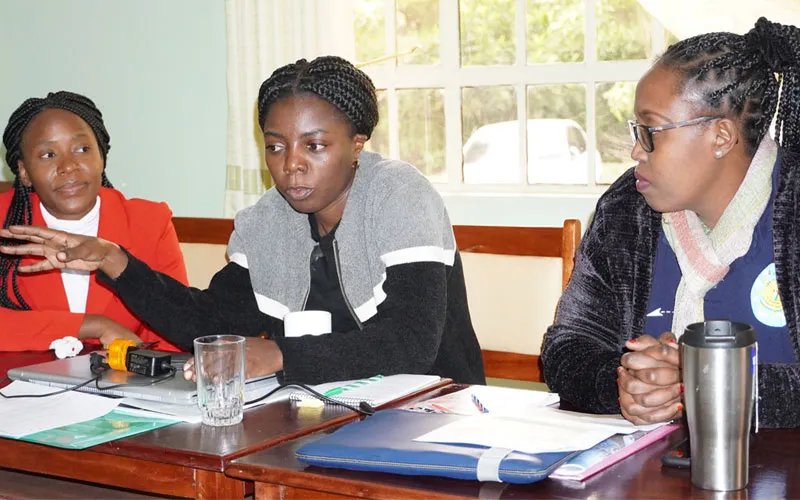Blantyre, 16 June, 2022 / 9:48 pm (ACI Africa).
The two-day “strategy building workshop” that brought together representatives of member and partner organizations of the Jesuit Justice and Ecology Network Africa (JENA) in Kenya’s capital, Nairobi, this week to discuss “climate justice and integral ecology” emphasized the need for increasing funding for Africa.
In an interview with ACI Africa on the sidelines of the workshop that concluded Tuesday, June 14, JENA’s research and policy analyst for food and climate justice who organized the workshop said participants explored “the most important priorities for Africa for climate”.
“In this workshop, based on other dialogues, the most important priorities for Africa for climate right now are increased funding for adaptation,” Bryan P. Galligan told ACI Africa during the June 14 interview.
 Bryan Galligan SJ. The research and policy analyst for food and climate justice at Jesuit Justice and Ecology Network Africa (JENA). Credit: ACI Africa
Bryan Galligan SJ. The research and policy analyst for food and climate justice at Jesuit Justice and Ecology Network Africa (JENA). Credit: ACI Africa
Galligan, a member of the Society of Jesuit (SJ), underscored the need for “a strong loss and damage mechanism that would compensate countries and especially communities for the losses and damages they've already suffered.”




 Some of the participants during group discussions at the workshop. Credit: Jesuit Conference for Africa and Madagascar (JCAM)
Some of the participants during group discussions at the workshop. Credit: Jesuit Conference for Africa and Madagascar (JCAM)
 Some of the participants during group discussions at the workshop. Credit: Jesuit Conference for Africa and Madagascar (JCAM)
Some of the participants during group discussions at the workshop. Credit: Jesuit Conference for Africa and Madagascar (JCAM)